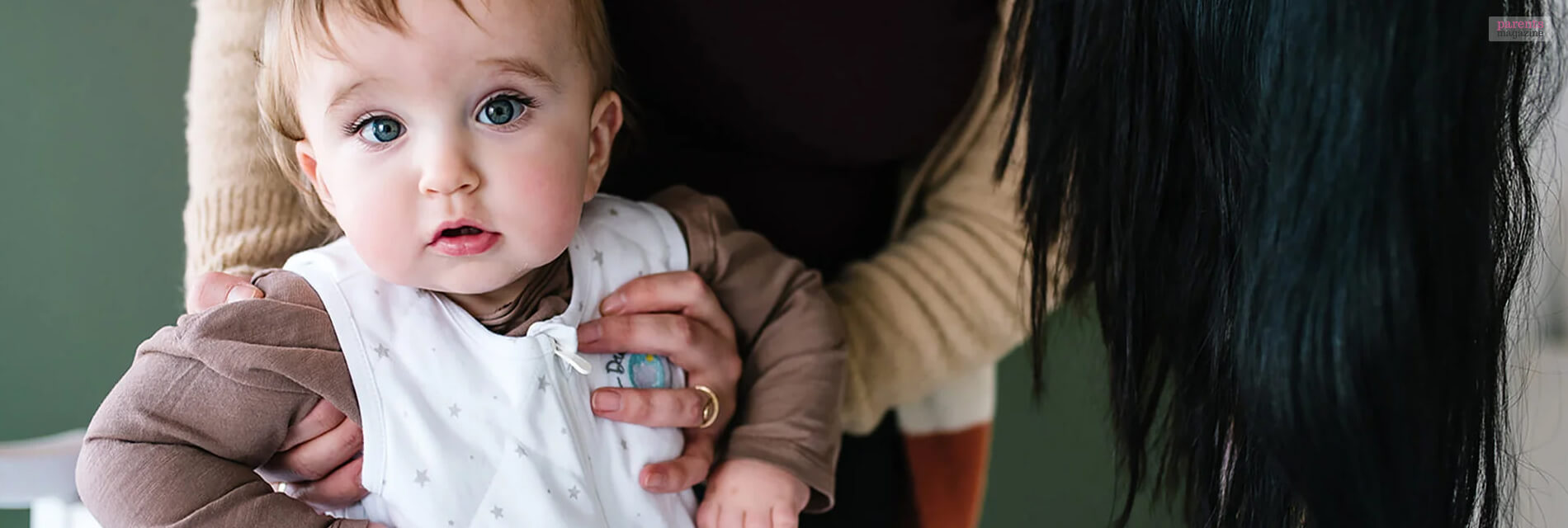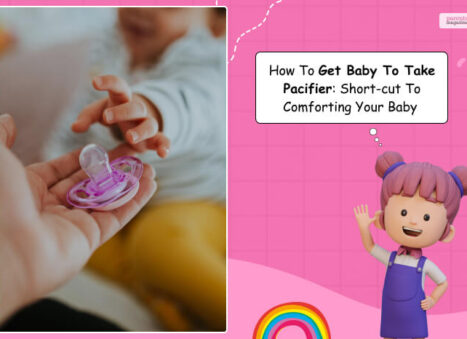
Developmental Leaps: The Inevitable Yet Temporary Change In a Baby’s Life
Being a new mom is never easy. Dealing with the babies, learning new things about them, how to take care of them, and learning to soothe them is quite overwhelming actually. And adding to this comes the leap or, to be precise, “developmental leaps.”
If you are a new mom trying hard to cope with all the things you hear from other moms but find it difficult to understand, then read this article. This is going to clear all the doubts you have about the leap your baby might be going through and what you can do to help them during this phase.
What Are Developmental Leaps?

A developmental leap is a phase or a period, where the baby goes through intense mental development. Babies generally go through ten mental leaps during the initial twenty months of their life. These leaps are connected to their correct age, which depends on their due date and not on their birth date.
Signs That Your Baby Is In A Leap
During the developmental leap, their brain is learning various skills, taking more information and making mental developments, which is going to have an effect on them.

Some of the signs that you might notice are:
- The three Cs will increase, crankiness, crying, and clinginess.
- Their sleeping patterns will change.
- Their unpredictable mood will catch you off-guard.
- Their existing skills will improve.
- They might develop separation anxiety.
- There could be some change in their health.
- They could get fussy while eating.
Let’s look into a few of these in detail to get you prepared for what might be coming your way.
Change In Behavior Or Mood
During this phase, the three C’s increase, which are
- Crankiness
- Crying
- Clinginess
If you find a big shift in their mood, it is quite possible that they are going through a leap. Their might is working excessively and doing extraordinary things, and their world is going through a major change. This is quite a scary thing for such a small human who does not know the world around them and is still trying to figure things out.
During this phase, their whole perception of the world is changing, and they are trying to adapt themselves to this new change. They are going through turmoil, and it is normal that they would want to feel secure during this time and get more clingy.
Fussy Feeding
During this phase, you might find that your baby is losing their appetite. They might behave a lot more fussy than they usually do when you feed them. This is something very common but does not last a long time. You might notice:
- Might want to feed more frequently than usual.
- They might lose their appetite.
- Gets easily distracted by the surroundings and gets on and off the bottle or breast.
- Does not drink in adequate quantities and likes to snack throughout the day.
- Do not enjoy solid food and get more fussy than usual even if they liked that food before.
- Would ask for more snacks if they are on solid food and are not eating properly.
Change In Health
Though this is not a common trait, you might notice that their health is having some negative effects during this phase. The common health issues that you might face are:
- Cold
- Coughs
- Ear infections
- Teething
It is better to contact your doctor if you see any health issues with your child. You might not understand, but your baby could be feeling unwell, so without taking any risk, it is better to seek help from a professional.
Learning Various Skills
It might seem that the developmental leap is just having some negative changes, but this is a positive one. After dealing with all the negative ones, you get to witness your baby’s learning and developing changes. You can expect the following:
- Learning how to smile
- Rolling over
- Learning how to hold their head upright
- Holding toys
- Looking for their main caregiver
- Playing peek-a-boo
- Waving
- Improving their vocabulary
- Trying to have a conversation with you
- Starting to role-play
How Does A Developmental Leap Affect A Baby’s Sleep And Settling?

It is not just that their personality has suddenly altered, but their sleep routine will face a sudden change as well. Due to the rapid brain development, there might be some irregularities in their sleep routine. You might experience
- Resisting bedtime or naps.
- Finding it difficult to get them to sleep
- Waking up more during the night.
- Getting up early in the morning.
- Feeding more during the night.
- Naps get shorter during this phase.
- They would be tired during the day.
How Long Does A Leap Last?
The leap might feel like a never-ending process, but it is going to end. Developmental leaps vary for different babies. The shortest leap could last just a week, and the longest could last for almost five weeks.

It might seem like a long time, but even the longest developmental leaps have some gaps, and on some days, you will not even realize that your baby is going through the leap phase. And some days might get extra tough and could take a toll on you, but don’t lose hope; this too shall pass.
What Can You Do To Help A Baby In The Leap?

The first thing that you should keep in mind is that this is just a phase and will pass too. There is nothing wrong with your baby; they are just going through some changes. Just continue with the normal routine, and it is also reassuring for them. This is also going to help them go back to their normal routine. Here are some tips you can follow during this phase:
- Try to stay calm, and remember that the leap is a good thing. This means that your baby is developing and learning as they should.
- Stick to the regular routine as much as you can.
- Avoid new sleeping associations.
- Physical contact is going to help a lot. Skin-to-skin is a really good idea and would help your baby a lot.
- You can use a sling to keep the baby close to you and do your household chores as well.
- Ask your partner to help when you need a break. Or seek help from your friends and family.
Wrapping Up!
It might be tough getting through the developmental leaps, not just for the babies but for the parents as well. But this is a normal part of their development. Leaps can affect babies in various ways, but one thing that you should remember is that this is temporary. The best you can offer your child is to be consistent with them and not change their routine until the phase has passed. Just hang in there, and this phase will pass in no time.
RECOMMENDED READING:
Already have an account?
Sign In
Create your account
User added successfully. Log in








